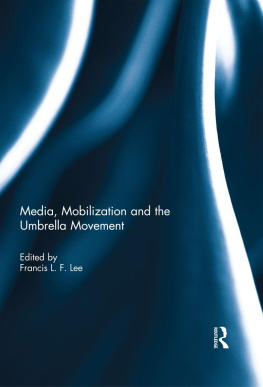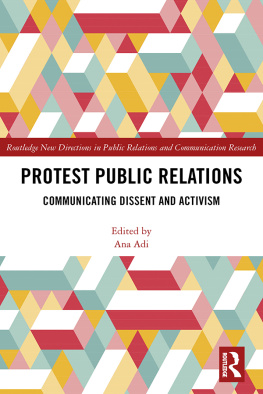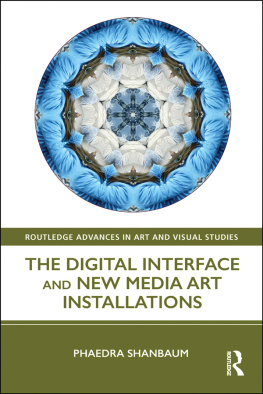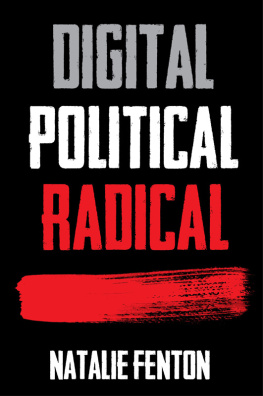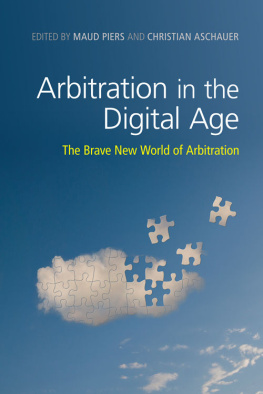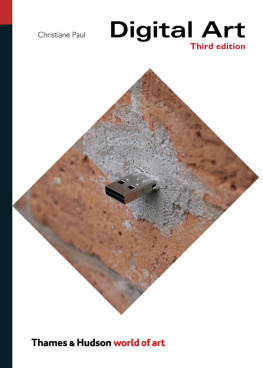
Performing Digital Activism
From the emergence of digital protest as part of the Zapatista rebellion, to the use of disturbance tactics against governments and commercial institutions, there is no doubt that digital technology and networks have become the standard features of 21st century social mobilisation. Yet, little is known about the historical and socio-cultural developments that have transformed the virtual sphere into a key site of political confrontation. This book provides a critical analysis of the developments of digital direct action since the 1990s. It examine the praxis of electronic protest by focussing on the discourses and narratives provided by the activists and artists involved. The study covers the work of activist groups, including Critical Art Ensemble, Electronic Disturbance Theater and the electrohippies, as well as Anonymous, and proposes a new analytical framework centred on the performative and aesthetic features of contemporary digital activism.
Fidle A. Vlavo is Assistant Professor in Digital Communication at Universidad Iberoamerica, Mexico.
Routledge Studies in New Media and Cyberculture
For a full list of titles in this series, please visit www.routledge.com
28 Digital Audiobooks
New Media, Users, and Experiences
Iben Have and Birgitte Stougaard Pedersen
29 Locating Emerging Media
Edited by Germaine R. Halegoua and Ben Aslinger
30 Girls Feminist Blogging in a Postfeminist Age
Jessalynn Keller
31 Indigenous People and Mobile Technologies
Edited by Laurel Evelyn Dyson, Stephen Grant, and Max Hendriks
32 Citizen Participation and Political Communication in a Digital World
Edited by Alex Frame and Gilles Brachotte
33 Feminism, Labour and Digital Media
The Digital Housewife
Kylie Jarrett
34 The Politics of Ephemeral Digital Media
Permanence and Obsolescence in Paratexts
Edited by Sara Pesce and Paolo Noto
35 Studying Digital Media Audiences
Perspectives from Australasia
Edited by Craig Hight and Ramaswami Harindranath
36 Between the Public and Private in Mobile Communication
Ana Serrano Tellera
37 Performing Digital Activism
New Aesthetics and Discourses of Resistance
Fidle A. Vlavo
First published 2018
by Routledge
711 Third Avenue, New York, NY 10017
and by Routledge
2 Park Square, Milton Park, Abingdon, Oxon OX14 4RN
Routledge is an imprint of the Taylor & Francis Group, an informa business
2018 Taylor & Francis
The right of Fidle A. Vlavo to be identified as author of this work has been asserted by him in accordance with sections 77 and 78 of the Copyright, Designs and Patents Act 1988.
All rights reserved. No part of this book may be reprinted or reproduced or utilised in any form or by any electronic, mechanical, or other means, now known or hereafter invented, including photocopying and recording, or in any information storage or retrieval system, without permission in writing from the publishers.
Trademark notice: Product or corporate names may be trademarks or registered trademarks, and are used only for identification and explanation without intent to infringe.
Library of Congress Cataloging-in-Publication Data
CIP data has been applied for.
ISBN: 978-1-138-91124-6 (hbk)
ISBN: 978-1-315-69286-9 (ebk)
Typeset in Sabon
by codeMantra
A la mmoire de Hugues C. Vlavo
I completed this book with the support and constant encouragement of many people and my thanks here can only partially express the extent of my gratitude. First, I would like to thank members of Critical Art Ensemble, Electronic Disturbance Theater and Anonymous, for agreeing to participate in this research, by giving their time and sharing their thoughts on their creative practice and their knowledge about digital activism. These encounters were personally enriching and essential to the realisation of this project.
I am grateful for the financial support I received from the British Academy, through its BA/Leverhulme Small Research Grants scheme (SG132964), in order to carry out part of my investigation. I also wish to thank the editorial staff at Routledge for giving me the support and the space to complete this book, as well as their assistance to publish the manuscript. In addition, I am thankful to the two anonymous reviewers whose expert and generous comments helped swerve the book towards its final direction.
Part of this monograph was based on my doctoral thesis and I would like to thank my supervision team, Hillegonda Rietveld and Suzy Kerr-Pertic, for their steady guidance and mentoring. Special thanks are also due to Andrew Dewdney who introduced me to the field of digital culture and media, and opened the path to an exciting research career.
For many years, Monday was the day to get the blues, fortunately I was surrounded by fantastic travelling fellows, thank you Maria Barrett, Edith Phaswana, Marcelo Batarce, and Diego Canciani, for the many uplifting and rewarding journeys.
The genesis of this book began during my time at the Department of Culture Media and Creative Industries, at Kings College London, and I thank my former colleagues for their encouragement and advice in getting the project off the ground. Warm thanks to Melissa Nisbett, Bridget Conor, Christina Scharff, Btihaj Ajana and Hye-Kyung Lee. Special thanks also to Tim Jordan for his inspiring academic integrity and his kind mentorship.
Halfway through this project, I was fortunate enough to land a research position at the Universidad De Las Americas Puebla, Mexico. This opportunity transformed my life in many ways. I would like to thank el grupo de investigacin Ms all del Texto Cultura Digital y Nuevas Epistemologas, for welcoming me, and in particular, Alberto Lopez Cuenca, for overseeing my residency.
Part of this research would simply not have been possible without the kindness and generosity of many people. In particular, I would like to thank John Holloway for welcoming me into the world of Zapatistas and for leading me to Chiapas. John has the incredible ability to give hope when nothing seems to hold, and I certainly benefited from his brilliant advice and support. I am also lucky to have attended many sessions of the Seminario de Subjetividad y Teora Critica, at the Benemrita Universidad Autnoma de Puebla, which opened my mind, through intellectual exchanges and cheerful conversations. I also wish to thank my travelling companions for the supportive environment created during the Zapatistas Seminario in San Cristbal de Las Casas. Warm thanks go to the members of the Mesa Directiva of Acteal, Chiapas, who kindly opened their doors and guided me through the painful but necessary path of remembrance.
A book project can easily be started, but much more is required to bring it to conclusion. For this, many great thanks are due to my dear friends and colleagues who took the time to review and comment on various versions of the chapters. Thanks to Btihaj Ajana, Elefteria Lekakis, and Jesus- Mario Lozano. My dear Cholulteca friend, Stefania Charitou deserves a special mention and a huge thank you, for reading the entire script with great care, and providing valuable feedback. Your unwavering support has helped in the completion of this book. The other person whom I also owe a huge thank you to is my very dear, and very patient friend, Mario Lozano, whose encouragements and humour never failed to lift me up in the hardest moments of the writing. I am also thankful to my international Mexican family for making sure that I was in constant supply of food, shelter and laughter. Thank you to the chef Cristina Goletti, the spiritual guide Carolina Tabares, and the leader in cheers Lisa Kusanagi.


